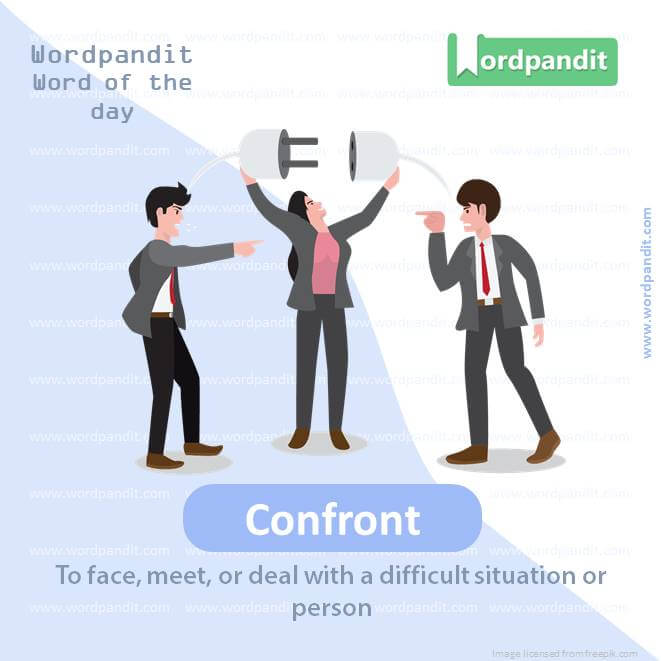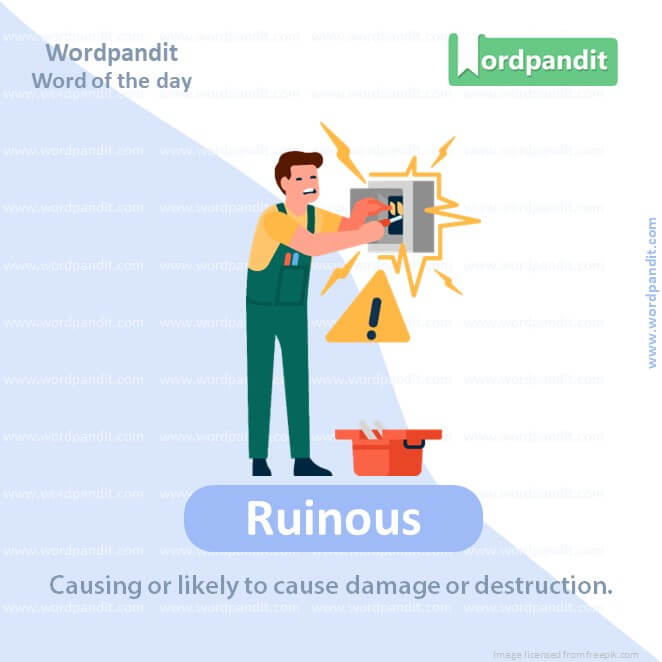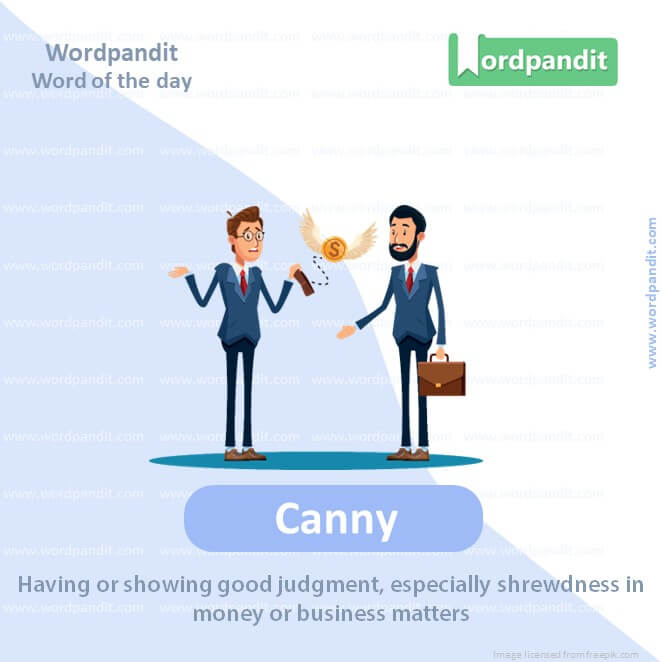Daily Vocabulary Words: List of Daily Used Words in Leading International Newspapers
Hi there. Welcome to this special section @ Wordpandit.
Our endeavour here is very simple: to highlight important daily vocabulary words, which you would come across in leading newspapers in the country. We have included the following newspapers in our selection:
• The New York Times
• The Washington Post
• Scientific American
• BBC
• The Guardian
• Psychology Today
• Wall Street Journal
• The Economist
We are putting in extensive work for developing your vocabulary. All you have got to do is be regular with this section and check out this post on a daily basis. This is your repository of words that are commonly used and essentially, we are posting a list of daily used words. Hence, this has significant practical application as it teaches you words that are used commonly in leading publications mentioned above.
Visit the website daily to learn words from leading international newspapers.

WORD-1: BERATED
CONTEXT: The coach berated his team for their lackluster performance, emphasizing the need for discipline and focus on the field.
SOURCE: The New York Times
EXPLANATORY PARAGRAPH: Imagine if someone kept telling you that you did something wrong, again and again. That’s what it means to be berated. It’s like when you spill juice and someone keeps telling you it was a mistake.
MEANING: You do more than raise your voice at them; berate implies putting someone down by insulting their character (verb).
PRONUNCIATION: buh-RAY-ted
SYNONYMS: chided, reprimanded, rebuked, upbraided, scolded, chastised, reproached
USAGE EXAMPLE:
1. She berated him for leaving the door open.
2. The teacher berated the class for not doing their homework.
3. He felt bad after being berated by his boss.
4. The coach berated the team for their lack of effort.

WORD-2: CONFRONT
CONTEXT: As climate change effects become more evident, nations are pressed to confront the dire consequences of their environmental decisions.
SOURCE: The Guardian
EXPLANATORY PARAGRAPH: Confront is when you face something or someone, especially if it’s difficult or challenging. Like when you tell your friend you’re upset because they took your toy.
MEANING: To face, meet, or deal with a difficult situation or person (verb).
PRONUNCIATION: kun-FRUNT
SYNONYMS: challenge, face, tackle, encounter, stand up to, address, oppose
USAGE EXAMPLE:
1. She decided to confront her fears and ride the roller coaster.
2. He confronted the thief who stole his wallet.
3. It’s important to confront problems rather than avoid them.
4. Lisa confronted her friend about the missing toy.

WORD-3: ENNOBLE
CONTEXT: The author’s intent behind the biography was not just to narrate a life but to ennoble the many unrecognized achievements of the subject.
SOURCE: The Economist
EXPLANATORY PARAGRAPH: Imagine you are given a crown because you did something really great. That’s like being ennobled. It means you’re being honored and made to feel special.
MEANING: To make something or someone better so that people admire it/ them more (verb).
PRONUNCIATION: en-NOH-bul
SYNONYMS: honor, elevate, exalt, dignify, glorify, raise, uplift
USAGE EXAMPLE:
1. The king chose to ennoble the brave soldier for his service.
2. Her selfless acts ennobled the entire community.
3. By studying hard, she hoped to ennoble her family’s name.
4. The award served to ennoble his contributions to science.

WORD-4: RUINOUS
CONTEXT: Many economists warn that failing to address the current debt levels could have ruinous implications for the global economy.
SOURCE: The Washington Post
EXPLANATORY PARAGRAPH: Something that’s ruinous causes a lot of damage or harm. It’s like when a big storm comes and breaks a lot of things.
MEANING: Causing or likely to cause damage or destruction (adjective).
PRONUNCIATION: ROO-in-us
SYNONYMS: destructive, devastating, catastrophic, damaging, harmful, detrimental, disastrous
USAGE EXAMPLE:
1. The fire had a ruinous effect on the town.
2. Their decision proved to be ruinous for the company.
3. The hurricane was ruinous to the coastal village.
4. Investing all their money in a risky venture was a ruinous choice.
WORD-5: BIAS
CONTEXT: It seems there was a typographical error in the document, where ‘bias’ was spelled as ‘bais,’ causing confusion among readers.
SOURCE: BBC
EXPLANATORY PARAGRAPH: Bias is like having a favorite ice cream flavor and not wanting to try any other flavors. It means you like or dislike something or someone for no good reason.
MEANING: A prejudice in favor of or against something, often without fair reason (noun).
PRONUNCIATION: BYE-us
SYNONYMS: prejudice, favoritism, partiality, unfairness, one-sidedness, inclination, predisposition
USAGE EXAMPLE:
1. The judge should not have any bias when making a decision.
2. She had a bias against spicy food without even trying it.
3. The survey results were skewed due to bias.
4. His bias towards a particular team is evident in his articles.

WORD-6: CANNY
CONTEXT: “Investors are becoming increasingly canny, diversifying their portfolios to hedge against potential market downturns.”
SOURCE: The Economist
EXPLANATORY PARAGRAPH: If someone is canny, it means they’re really smart about making decisions, like knowing when to save their candy instead of eating it all at once.
MEANING: Having or showing good judgment, especially shrewdness in money or business matters (adjective).
PRONUNCIATION: KAN-ee
SYNONYMS: astute, shrewd, smart, savvy, sharp-witted, clever, prudent
USAGE EXAMPLE:
1. Her canny investment choices made her wealthy.
2. He was canny enough to see through their trick.
3. With a canny smile, she revealed her plan.
4. Being canny, he saved up his allowance instead of spending it all.
WORD-7: RESUSCITATION
CONTEXT: “After the accident, immediate resuscitation efforts on site by paramedics saved the young man’s life.”
SOURCE: Al Jazeera
EXPLANATORY PARAGRAPH: Resuscitation is like helping someone breathe and wake up when they’re in big trouble. It’s like blowing up a balloon that has no air.
MEANING: The act of reviving someone from unconsciousness or apparent death (noun).
PRONUNCIATION: re-suh-si-TAY-shun
SYNONYMS: revival, revitalization, rejuvenation, restoration, renewal, reanimation
USAGE EXAMPLE:
1. The lifeguard performed resuscitation on the man who had almost drowned.
2. CPR is a method of resuscitation.
3. The medical team succeeded in the resuscitation of the patient.
4. Early resuscitation can increase the chances of survival.
WORD-8: ORDAINED
CONTEXT: “She broke barriers in her community by becoming the first woman to be ordained as a priest in the local church.”
SOURCE: The Guardian
EXPLANATORY PARAGRAPH: When someone is ordained, it means they’re given a special role or duty, like becoming a leader in a church. It’s like being chosen to be the captain of a team.
MEANING: To make someone a priest or minister; to order or decree officially (verb).
PRONUNCIATION: or-DAYN-ed
SYNONYMS: consecrated, commissioned, appointed, anointed, decreed, instituted
USAGE EXAMPLE:
1. He was ordained as a priest last year.
2. The tradition was ordained by the ancestors.
3. After studying for years, she was finally ordained.
4. The council ordained the new rules for the community.
WORD-9: DULCET
CONTEXT: “The dulcet tones of the flute provided a calming backdrop to the bustling market streets.”
SOURCE: Scientific American
EXPLANATORY PARAGRAPH: Dulcet sounds are really sweet and pleasant to hear. It’s like listening to your favorite lullaby or the song of a pretty bird.
MEANING: Sweet and soothing, especially when referring to sound (adjective).
PRONUNCIATION: DUL-sit
SYNONYMS: melodic, sweet-sounding, mellifluous, harmonious, tuneful, euphonious
USAGE EXAMPLE:
1. The dulcet tones of the violin put everyone in a relaxed mood.
2. She loved waking up to the dulcet chirping of birds outside her window.
3. His voice had a dulcet quality that made every story sound captivating.
4. The concert began with the dulcet sounds of a harp.
WORD-10: PROFITEERING
CONTEXT: “In the wake of the natural disaster, local authorities warned businesses against profiteering, emphasizing the importance of community support during difficult times.”
SOURCE: The New York Times
EXPLANATORY PARAGRAPH: Imagine if someone sold umbrellas for a lot of money only when it rained because they knew people would buy them. That’s profiteering. It means trying to get more money by taking advantage of situations.
MEANING: Making excessive profits from goods or services, especially during times of scarcity or crisis (noun).
PRONUNCIATION: PROF-it-eer-ing
SYNONYMS: extortion, gouging, overcharging, exploitation, greed, price-gouging, racketeering
USAGE EXAMPLE:
1. During the crisis, several shops were accused of profiteering by raising their prices.
2. The government warned businesses against profiteering during the hurricane.
3. The company’s profiteering tactics were criticized in the media.
4. People were outraged when they saw the profiteering prices of basic goods.







